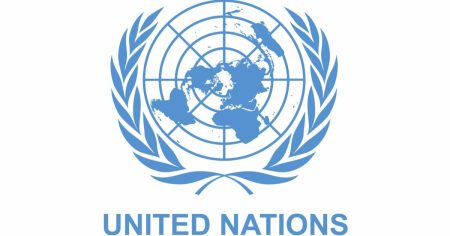Gombe State, Nigeria, has received commendation from the Joint United Nations Programme on HIV/AIDS (UNAIDS) for its significant strides in combating HIV, Tuberculosis (TB), and Malaria, and for exceeding the recommended 15% budgetary allocation to healthcare as stipulated by the Abuja Declaration. A UNAIDS delegation, led by Dr. Olaifa Yewande, lauded the state government’s commitment during a courtesy visit to Governor Muhammadu Yahaya. Gombe State has reportedly achieved a remarkable 95% reduction in cases of HIV, TB, and Malaria, demonstrating a clear commitment to public health. This accomplishment, coupled with the prioritization of healthcare funding, sets a positive example for other regions to follow, showcasing the impactful combination of robust policy implementation and adequate financial resource allocation.
The Abuja Declaration, adopted in 2001 by African Union member states, urged governments to allocate at least 15% of their annual budgets to improving the health sector. Gombe State’s surpassing of this benchmark signifies a strong political will to address critical health challenges and invest in the wellbeing of its citizens. This commitment lays a solid foundation for sustainable healthcare improvements and the development of resilient health systems. The prioritized funding allows for the implementation of comprehensive healthcare programs, improved access to medical services, and strengthened capacity to respond effectively to public health emergencies.
Governor Yahaya, represented by the Secretary to the Government of Gombe State, Professor Ibrahim Njodi, reiterated the administration’s commitment to maintaining and strengthening health sector reforms. A key aspect of this commitment is the development of a sustainability plan designed to mitigate any potential disruption caused by the withdrawal of international donor agencies, such as USAID. This proactive approach reflects a long-term vision for self-sufficient healthcare provision, safeguarding the progress made and ensuring continued access to essential health services for the population. The foresight to plan for potential funding gaps highlights the government’s commitment to long-term health security.
The state’s commitment to improving healthcare infrastructure is evident in the construction and renovation of 114 healthcare centers across the state’s wards. This extensive infrastructure development program aims to bring healthcare closer to the communities, improving accessibility for residents, especially those in remote or underserved areas. The ongoing second phase of this project further underscores the government’s dedication to expanding and strengthening the healthcare network. This investment in infrastructure lays the groundwork for a more robust healthcare system, ensuring that quality healthcare services are readily available to all citizens.
Furthermore, Gombe State has implemented the Gombe State Contributory Health Programme (GoHealth), an initiative geared towards ensuring affordable and accessible healthcare services for all residents. GoHealth represents a significant step towards achieving universal health coverage, addressing financial barriers to healthcare access and reducing out-of-pocket expenses for individuals and families. This program embodies the principle of inclusivity, aiming to “leave no one behind” in access to quality healthcare. By removing financial obstacles, GoHealth empowers citizens to prioritize their health and seek timely medical attention, ultimately contributing to improved health outcomes across the population.
The combined efforts of increased budgetary allocation, infrastructure development, and the implementation of the GoHealth program demonstrate Gombe State’s comprehensive approach to healthcare improvement. This multifaceted strategy emphasizes the importance of both accessible infrastructure and affordable services in creating a robust and equitable healthcare system. The state’s accomplishments in reducing the prevalence of HIV, TB, and Malaria, alongside its commitment to sustainable funding and accessible healthcare, highlight its dedication to public health and serve as a model for other regions striving to improve the health and well-being of their communities. The recognition by UNAIDS further validates the effectiveness of the state’s strategies and underscores the potential for significant progress in public health through focused investment and commitment.














